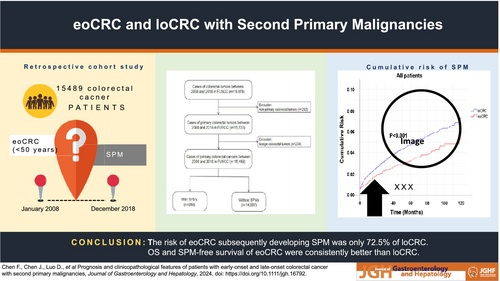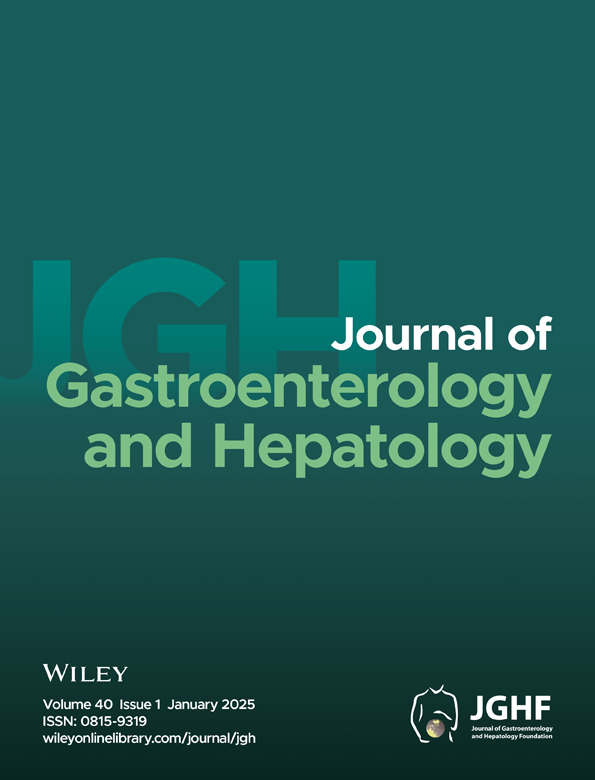Prognosis and clinicopathological features of patients with early-onset and late-onset colorectal cancer with second primary malignancies
Declaration of conflict of interest: The authors declare no conflicts of interest.
Author contribution: Methodology: Xinxiang Li and Qingguo Li. Writing—original draft: Fan Chen and Jiayu Chen. Writing—review and editing: Xinxiang Li and Qingguo Li. Project administration: Dakui Luo. Formal analysis: Ruijia Zhang. Data curation: Yufei Yang. Visualization: Fan Chen.
Ethical approval: No animal studies are presented in this manuscript. The studies involving humans were approved by the Ethical Committee and Institutional Review Board of the Fudan University Shanghai Cancer Center. The studies were conducted in accordance with the local legislation and institutional requirements. The participants provided their written informed consent to participate in this study. Written informed consent was obtained from the individual(s) and minor(s)' legal guardian/next of kin for the publication of any potentially identifiable images or data included in this article.
Financial support: This work was supported by the National Natural Science Foundation of China (81972260 and 82103259) and the Natural Science Foundation of Shanghai (21ZR1414400). The funders had no role in the study design, data collection and analysis, decision to publish, or preparation of the manuscript.
Abstract
Background and Aim
The risk of developing a second primary malignancy differs among colorectal cancer patients in different age groups. This study aimed to investigate the differences in prognosis and clinicopathological features of patients with early-onset colorectal cancer and late-onset colorectal cancer who developed second primary malignancies.
Methods
The study included 15 489 patients who underwent surgery for colorectal cancer at Fudan University Shanghai Cancer Center between January 2008 and December 2018. Data pertaining to these patients were derived from the database.
Results
A total of 680 (4.5%) patients subsequently developed a second primary malignancy. Considering death as a competing event, the 10-year cumulative risk of second primary malignancy for early-onset colorectal cancer was 5.3%, compared with 7.3% for late-onset colorectal cancer. Cox analysis showed that late-onset colorectal cancer, colon cancer, smaller tumor size, and fewer tumor nodules without residual lymph node structure, chemotherapy, and radiotherapy were independent risk factors for second primary malignancy. In our patient cohort, early-onset colorectal cancer was associated with better prognosis compared to late-onset colorectal cancer, for both overall survival and second primary malignancy-free survival. In addition, there was insufficient evidence that early-onset colorectal cancer also affected prognosis after the occurrence of second primary malignancies.
Conclusions
The risk of early-onset colorectal cancer subsequently developing second primary malignancy was significantly lower than late-onset colorectal cancer, and the second primary malignancies of early-onset colorectal cancer were more likely to be colorectal cancer. Overall survival and second primary malignancy-free survival of early-onset colorectal cancer were consistently better than late-onset colorectal cancer.
Graphical Abstract
Open Research
Data availability statement
The raw data supporting the conclusions of this article will be made available by the authors without undue reservation.





